Learn how to use chia seeds, what nutritional benefits they have, and the best ways to offer chia seeds for kids. Here are tips on which recipes work best with chia seeds, how to use chia seeds as an egg replacer, and our favorite chia seed recipes.
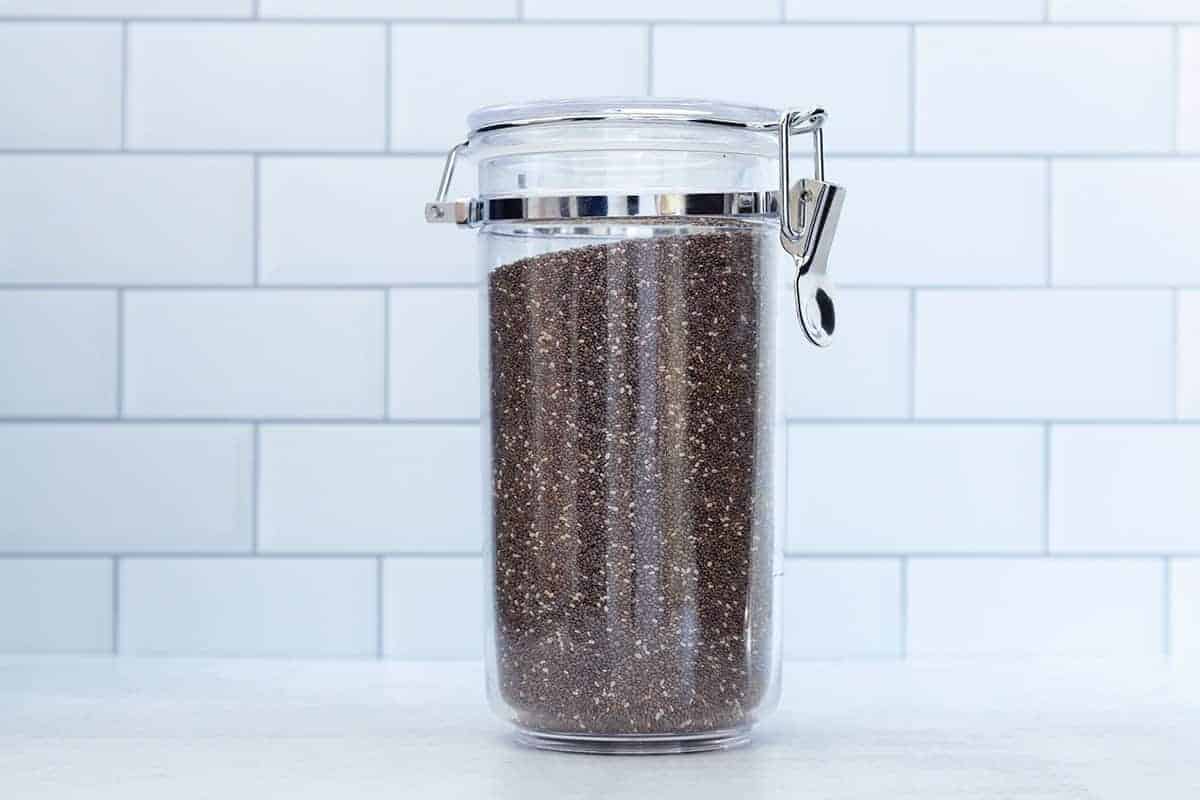
How to Use Chia Seeds
Chia seeds are tiny black or white seeds that have become fairly ubiquitous in the past few years. You may see them used in Coocnut Chia Puddings, cookies, smoothies, Chia Seed Oatmeal, and more. They are a great source of healthy fats and they can be helpful in binding recipes together—which is why they are commonly used as a vegan egg replacer and in no-cook puddings.
They are also a good source of fiber and can aid in reducing toddler constipation if used regularly.
Chia seeds, even with all of that good, can be tricky to use since they form a gel when they come in contact with liquids. So there are some basic guidelines to keep in mind to use them in ways that play to their strengths.
Table of Contents
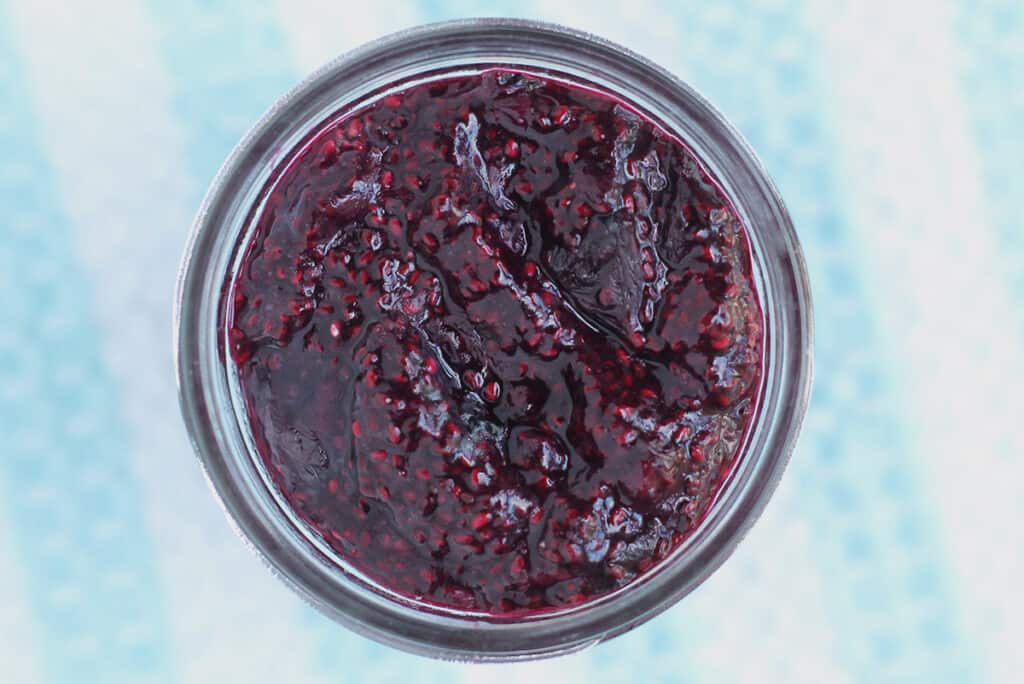
Chia Seed Benefits
These small seeds are rich in omega-3 fatty acids, fiber, protein, calcium, and zinc. According to Harvard:
“Two tablespoons of chia seeds (1 ounce or 28 grams) contain about 140 calories, 4 grams of protein, 11 grams of fiber, 7 grams of unsaturated fat, 18% RDA for calcium, and trace minerals including zinc and copper. They are the richest plant source of omega-3 fatty acids. Chia seeds are a complete protein, containing all nine essential amino acids that cannot be made by the body.”
That means that they can be a great food to incorporate into our kid’s diets on a regular basis. (They’re also fairly budget-friendly as far as “superfoods” go!)
Chia Seeds for Kids
I love using chia seeds in recipes for kids as a way to add nutrients—especially as a calcium food for kids and fiber. Because of the way they gel liquids, they could be a texture challenge for some kids.
See my favorite recipes using chia seeds at the bottom of this post to help.
Chia Seeds for Babies
Whether you prefer black chia seeds (which are very commonly available in stores) or white ones (which may blend into food a little more easily), they are a nutritious food for babies. The seed can be offered from an early age, soon after babies start solids.
Because of how much fiber they contain, start with a smaller amount at a time to allow baby’s system to adjust. And don’t feel like you need to offer them daily. Instead, consider them a healthy fat food and fiber source to keep in the mix.
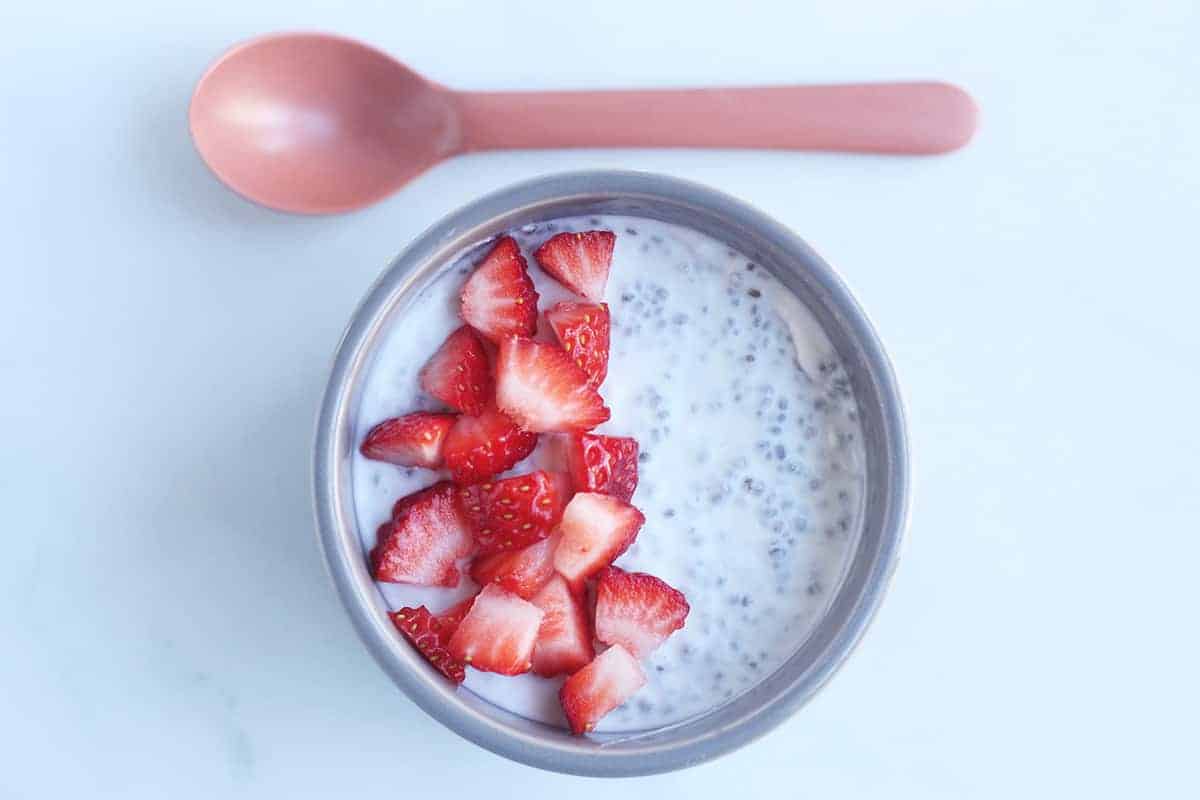
Frequently Asked Questions
You don’t have to soak chia seeds before adding them to all foods or recipes, though you don’t really want to eat them straight out of the container, as that won’t be a very pleasant texture experience. (At least in our experience.) Without soaking them, you can add chia seeds to oatmeal, smoothies, yogurt, and some recipes. Or you can sprinkle them on top of peanut butter toast.
The amount of chia seeds to offer a child may depend on whether they’ve had them before, how you plan to use them, and whether they have other regular sources of fiber, fat, and calcium. Due to the way chia seeds turn liquids to thick gels, many kids may prefer smaller amounts to start.
Since they help bind liquids and are rich in fiber and healthy fats, chia seeds can be a helpful food to have in the mix for chronic or occasional toddler constipation. (Be sure to offer a lot of liquids too because increasing fiber without hydrating foods or liquids may not help constipation and could even make it worse.)
This may vary based on the rest of what you eat in a day, so start with a smaller amount and increase as you like to avoid causing stomach upset.
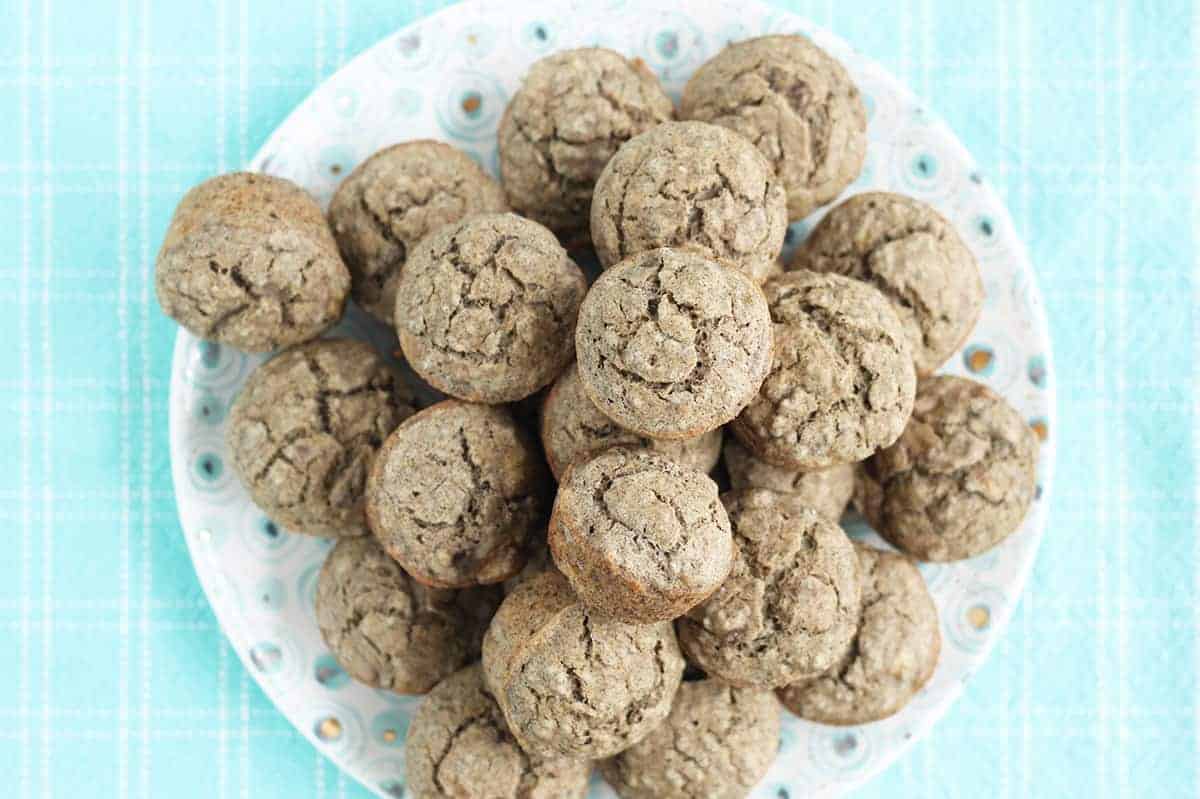
How do chia “eggs” work?
Chia seeds are mixed with liquid and allowed to sit to create a gel. This gel helps bind mixtures, such as vegan banana muffin batter, similarly to how eggs do. They do have a different texture experience, as you can often feel the tiny seeds as you chew, but if used in recipes that keep that in mind, they can be a great egg replacer.
Chia Seed Recipes to Try
Here are some of our favorite recipes for offering chia seeds to babies and kids. (And for us parents!)
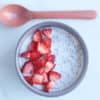
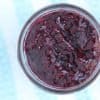
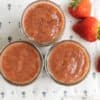
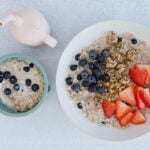
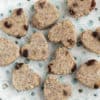
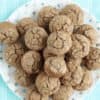
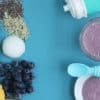
How to Store Chia Seeds
Store chia seeds, whether the black or white variety, in an airtight container in a cool, dry place. Unless the package directs you to store them in the fridge or freezer, you can store them at room temperature.
Best Tips for Success
- Chia seeds cause liquids to gel, so when using in recipes like smoothies and oatmeals, know that they may cause the dish or drink to thicken. Add more liquid as needed.
- Try chia seeds in recipes that work with their natural seedy texture, such as Blueberry Chia Jam.
- Start with a smaller amount of chia seeds to ensure the child’s system has a chance to get used to the large amount of fiber they contain.
- Sprinkle chia seeds on peanut butter toast, yogurt, oatmeal, or cottage cheese.
- Try chia seeds as an egg replacer in recipes like my Vegan Banana Muffins.
- Use ground chia seeds for a somewhat smoother texture experience.
- You may also like Strawberry Frozen Yogurt and Toddler Smoothies.
Related Recipes
Nutrition
How to Eat Hemp Seeds
Smoothie Recipes
Blueberry Constipation Smoothie
Nutrition
Ultimate Guide to Toddler Vitamins
I’d love to hear your feedback on this post, so please comment below to share.
This post was first published February 2022.
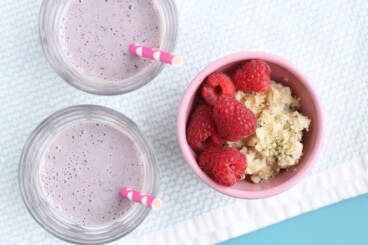
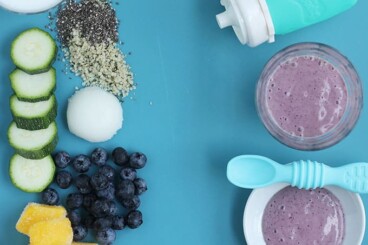
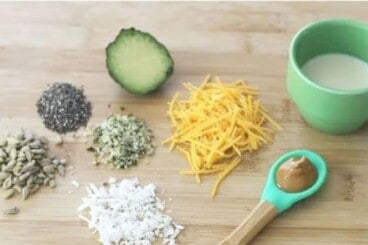
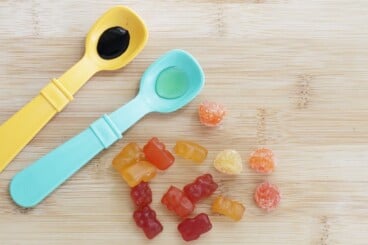
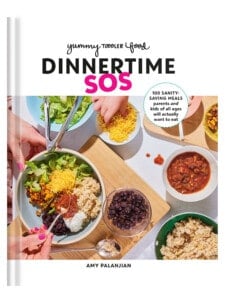
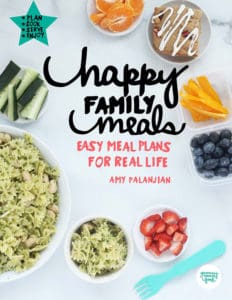

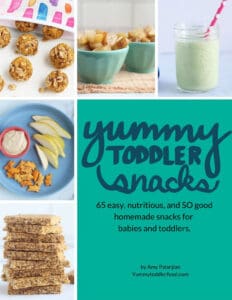














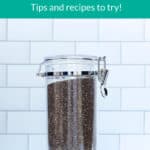
We use chia seeds in smoothies, but contrary to your article, the seeds remain whole, then attach to the sides of the glass and won’t even come off in the dishwasher. We are constantly scraping seeds off the sides of our glasses.
It’s entirely possible that would happen with a blender that’s not super powerful. You could try adding a cup of water and a little dish soap to the blender when you’re ready to clean it, then run the blender as if you’re making a smoothie. That usually helps clean it really well.